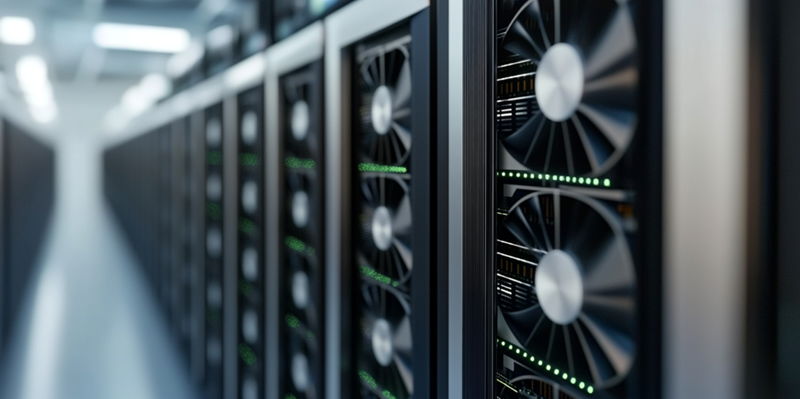TensorWave, a cloud service provider known for its high-end offerings, has announced an ambitious project poised to shake up the artificial intelligence (AI) landscape significantly. They aim to develop the world’s largest GPU clusters leveraging AMD’s cutting-edge AI hardware, which includes the Instinct MI300X, MI325X, and the forthcoming MI350X accelerators. This effort is not just about showcasing raw computing power; it represents a strategic move to challenge NVIDIA’s long-standing dominance in the AI accelerator market. The clusters are expected to consume approximately one gigawatt of power, underscoring the immense computational heft anticipated from these systems.
The heart of TensorWave’s strategy also includes adopting the new Ultra Ethernet interconnectivity standard which promises superior performance tailored for AI workloads. With this technology, TensorWave aims to create a seamless, high-throughput data exchange environment crucial for AI tasks. Through the promotion and efficient integration of AMD’s Instinct AI accelerators, TensorWave hopes to "democratize AI," providing advanced AI capabilities to a broader range of customers. This strategy could redefine AMD’s position in the AI hardware market, fostering a more competitive environment and reducing NVIDIA’s near-monopolistic grip on the sector.
The Role of AMD’s Instinct Accelerators
Empowering this ambitious project are AMD’s Instinct AI accelerators, which are known for their robustness and ability to handle complex AI tasks efficiently. The inclusion of the MI300X, MI325X, and upcoming MI350X in TensorWave’s clusters marks a significant endorsement of AMD’s technology capabilities. These accelerators are designed to provide substantial performance in AI computations, promising high efficiency and speed. The MI300X and its successors are expected to deliver a competitive edge that could rival and possibly surpass NVIDIA’s offerings.
The integration with Ultra Ethernet interconnectivity is another groundbreaking aspect that could give TensorWave’s clusters an even more significant advantage. Ultra Ethernet is designed to accelerate data transfer rates and reduce latency, crucial for the high-demand environment of AI computations. By utilizing this interconnectivity, TensorWave aims to create a robust infrastructure capable of supporting massive parallel processing tasks, which are the backbone of modern AI applications. This combined approach of top-tier hardware and advanced networking solutions could be key in positioning TensorWave as a formidable competitor to NVIDIA.
Impact on the AI Hardware Market
TensorWave, a renowned cloud service provider, has announced a groundbreaking project set to revolutionize the artificial intelligence (AI) industry. Their goal is to develop the largest GPU clusters in the world using AMD’s state-of-the-art AI hardware, specifically the Instinct MI300X, MI325X, and the upcoming MI350X accelerators. This initiative is more than just a display of sheer computing capability; it is a strategic move aimed at challenging NVIDIA’s stronghold in the AI accelerator market. The clusters are projected to consume around one gigawatt of power, highlighting the massive computational power expected from these systems.
Central to TensorWave’s strategy is the adoption of the Ultra Ethernet interconnectivity standard, which offers unparalleled performance optimized for AI workloads. With this technology, TensorWave plans to establish a seamless, high-bandwidth data exchange environment essential for AI operations. By promoting and effectively integrating AMD’s Instinct AI accelerators, TensorWave aspires to "democratize AI," extending advanced AI capabilities to a wider audience. This approach could shift AMD’s position in the AI hardware market, fostering greater competition and diminishing NVIDIA’s dominant influence in the sector.

